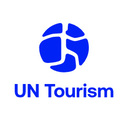COVID-19 Responses Must Not Undermine Solidarity And Confidence
Governments have a duty to put the wellbeing of their citizens first. At the same time, they also have a responsibility to protect livelihoods and businesses.
This goes hand-in-hand with a responsibility to preserve the spirit of international solidarity that has characterized our response to this shared crisis, a response that has included international institutions, the civil society at large and individual citizens.
Again and again, the pandemic puts us to the test and proves that we are stronger if we act together and not in isolation.
Unilateral actions can cause confusion and produce unnecessary consequences. More importantly, they can undermine public trust and confidence - precious commodities we have worked so hard to build up over these difficult few months.
To be clear, finding the right balance between public health concerns and supporting a sector upon which millions of people depend will not be easy. This is uncharted territory for us all. However, it can be done, as many places are now demonstrating.
On an official visit to the Canary Islands, UNWTO witnessed first-hand how the restart of tourism can be managed responsibly. During this week's visit to the Balearic Islands we are also seeing how the enforcement of strict health and hygiene protocols are the right partners for the reopening of tourist destinations.
Since the beginning of the COVID-19 outbreak, UNWTO has been calling for governments to work together and with the private sector to get tourism moving again. Now as the summer season is opening in many European countries, where tourism accounts for 27 million jobs and supports many businesses both big and small, we reiterate our call.
Destinations, the tourism sector and its millions of employees have been preparing over the past months to welcome visitors. Public authorities have also made significant
advances in prevention, detection and tracing. The challenges we were confronted with early this year persist, but we have learned important lessons and now more prepared. This is especially true for tourism, probably one of the safest environments right now due to its strong focus on people and their wellbeing.
It is not too late to ensure that the economic and social benefits tourism has a long history of delivering return before the end of the high season. For this, however, we need even greater cooperation and for both individual and joint actions to be considered and proportionate.
ZURAB POLOLIKASHVILI
SECRETARY-GENERAL,
WORLD TOURISM ORGANIZATION
About UN Tourism
The World Tourism Organization (UN Tourism), a United Nations specialised agency, is the leading international organisation with the decisive and central role in promoting the development of responsible, sustainable and universally accessible tourism. It serves as a global forum for tourism policy issues and a practical source of tourism know-how. Its membership includes 166 countries, 6 territories, 2 permanent observers and over 500 Affiliate Members from the private sector.
Media enquires: [email protected]
